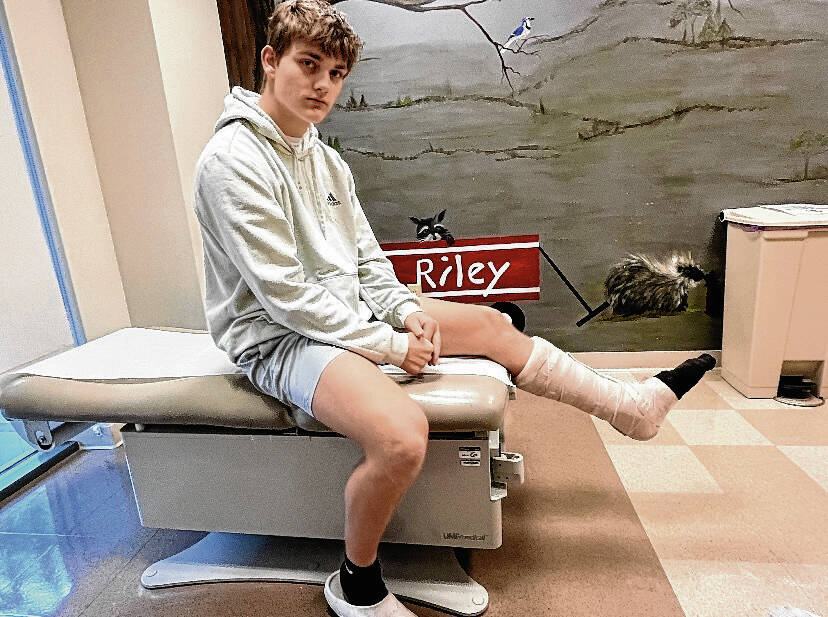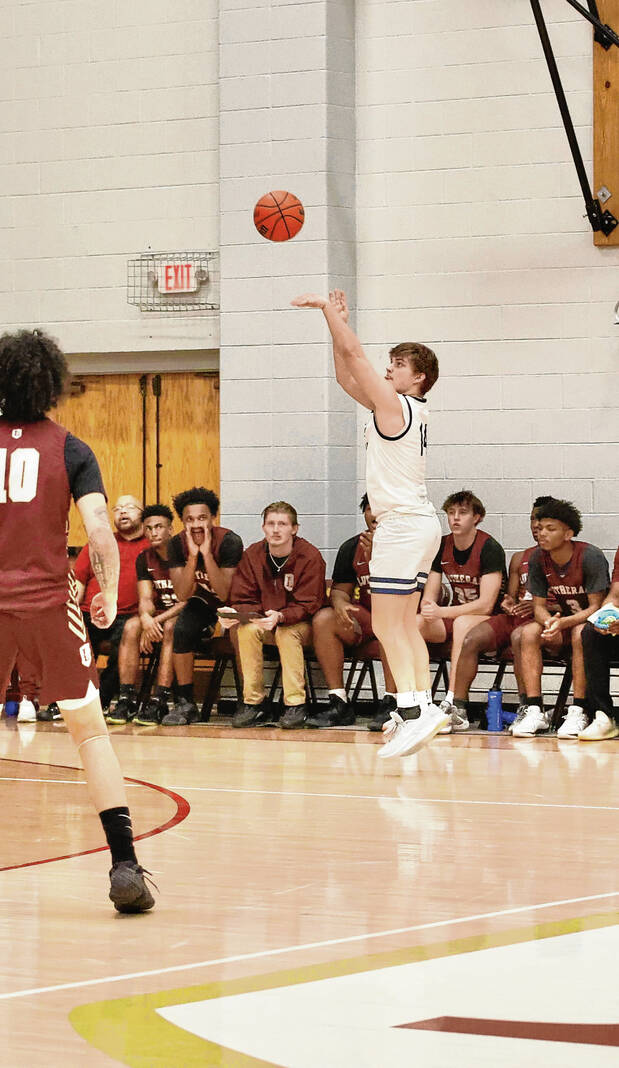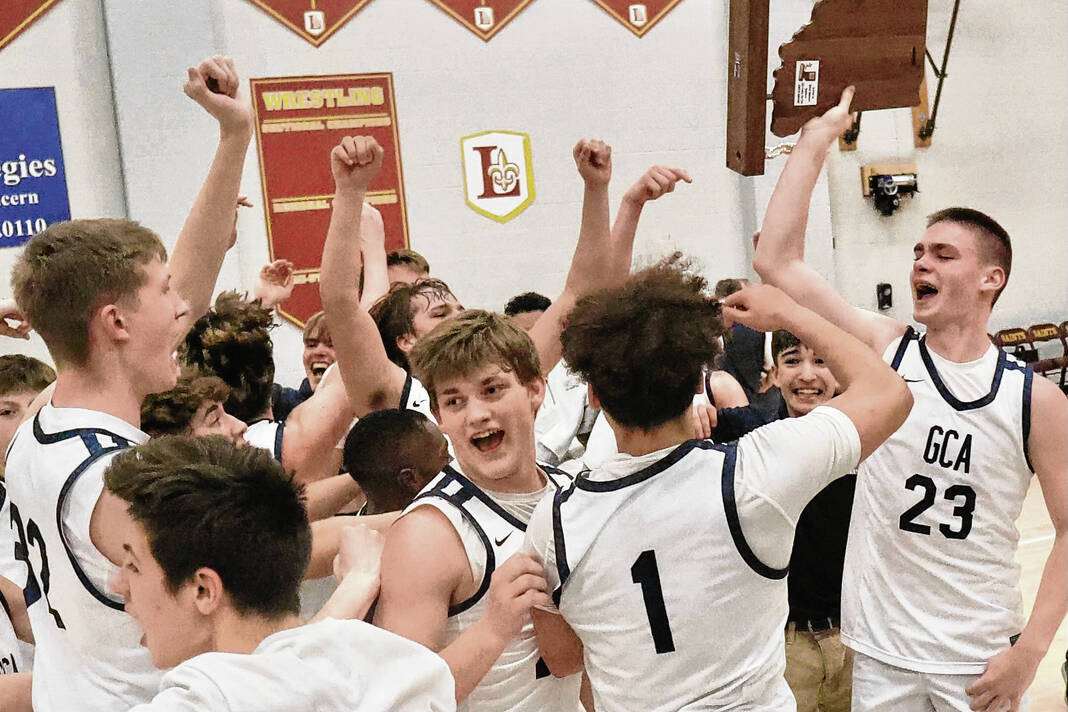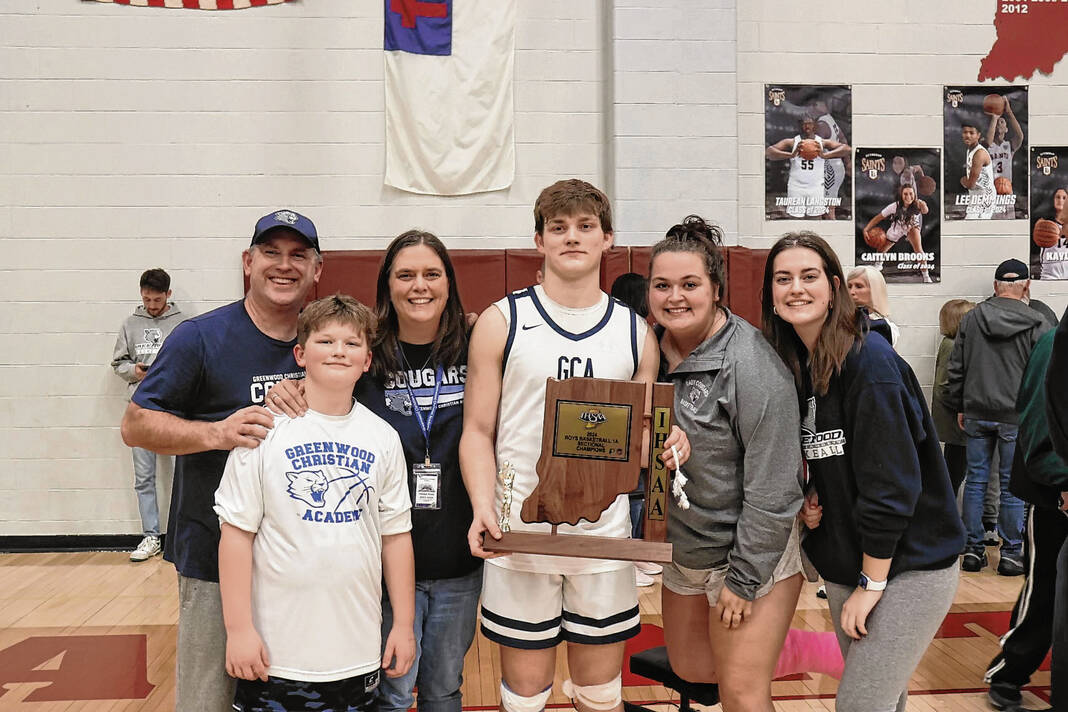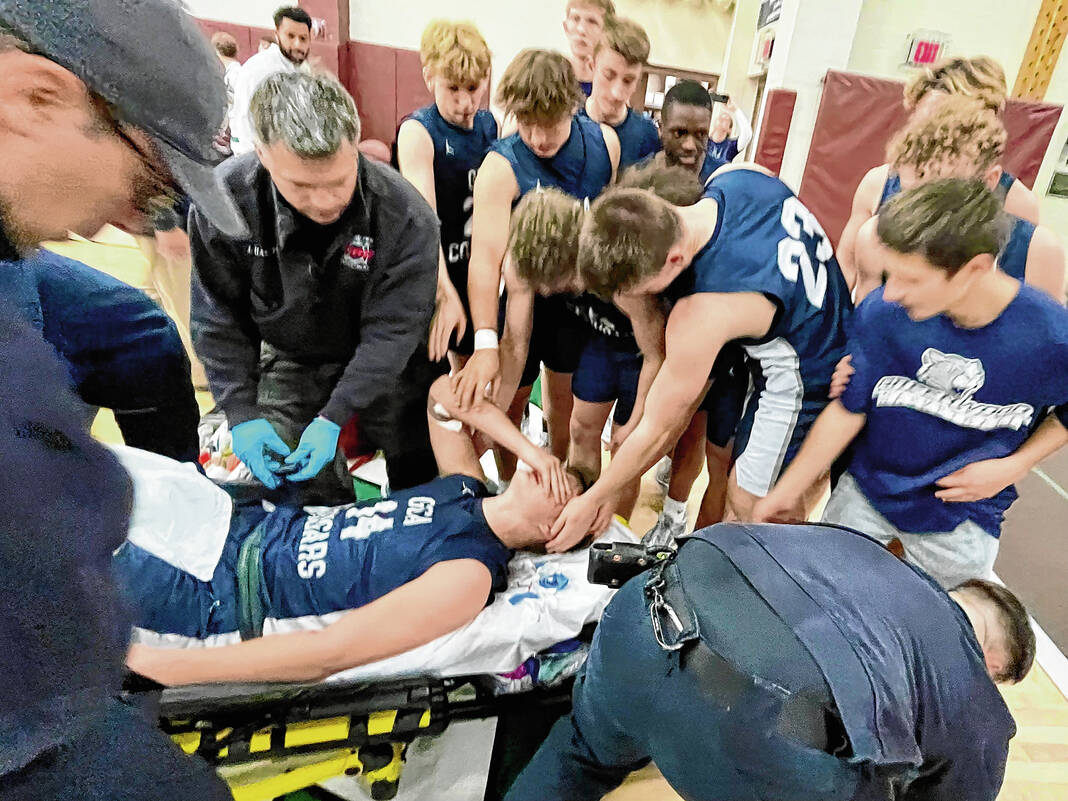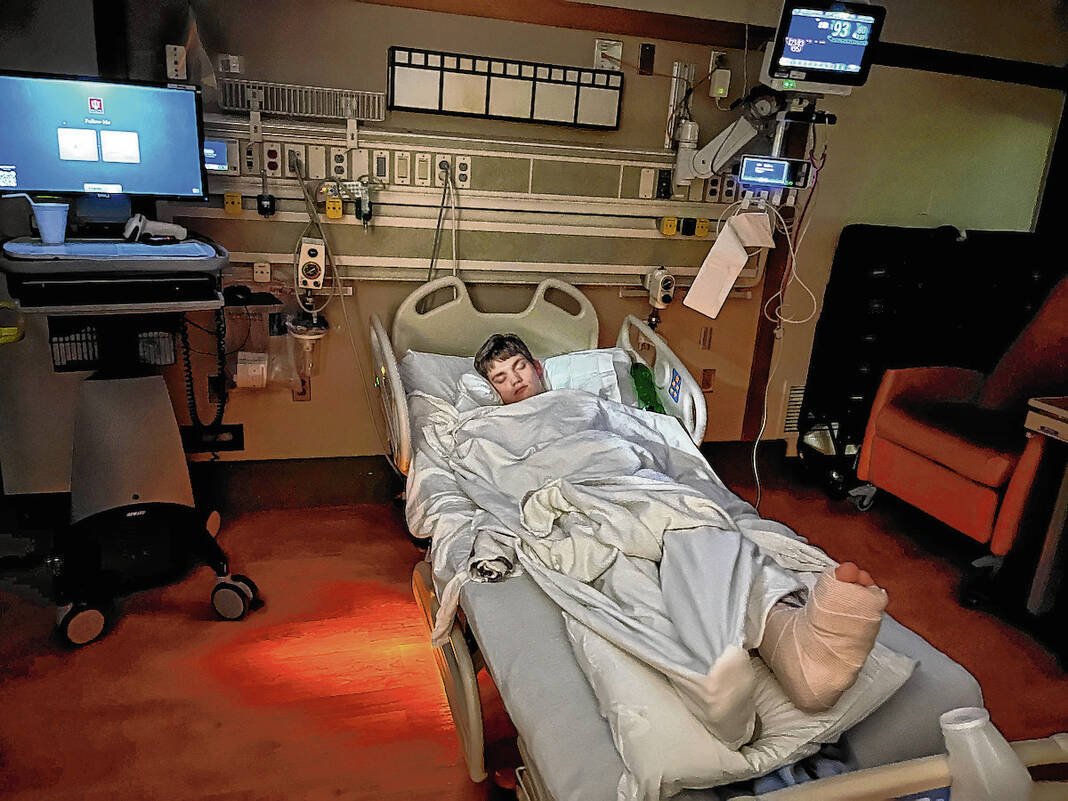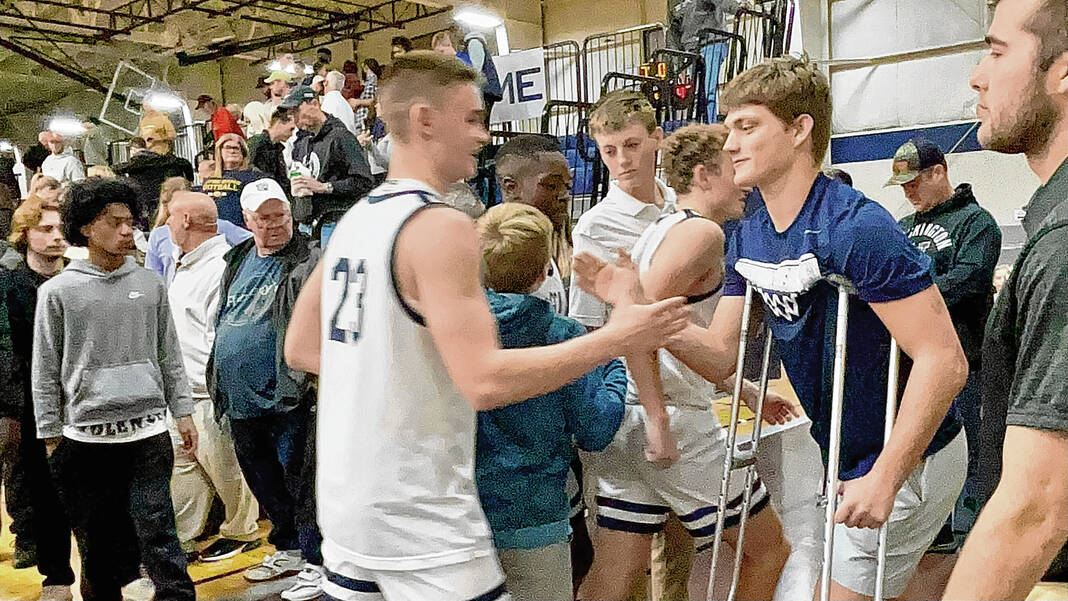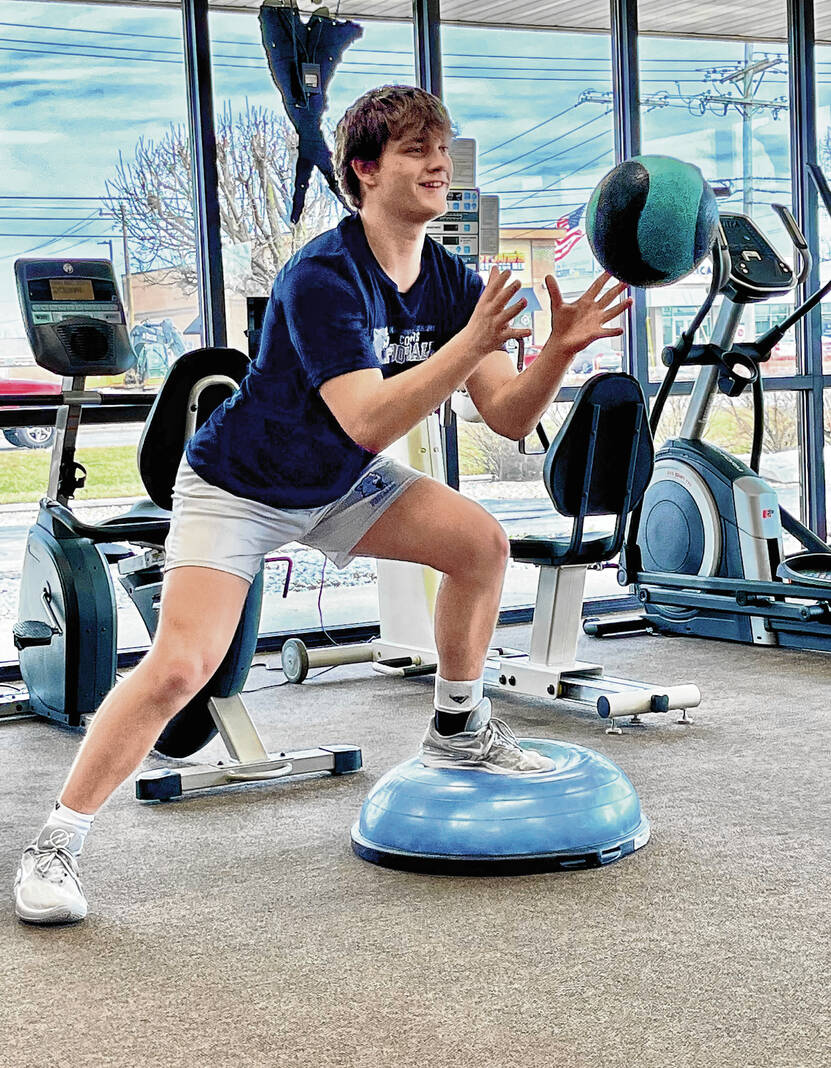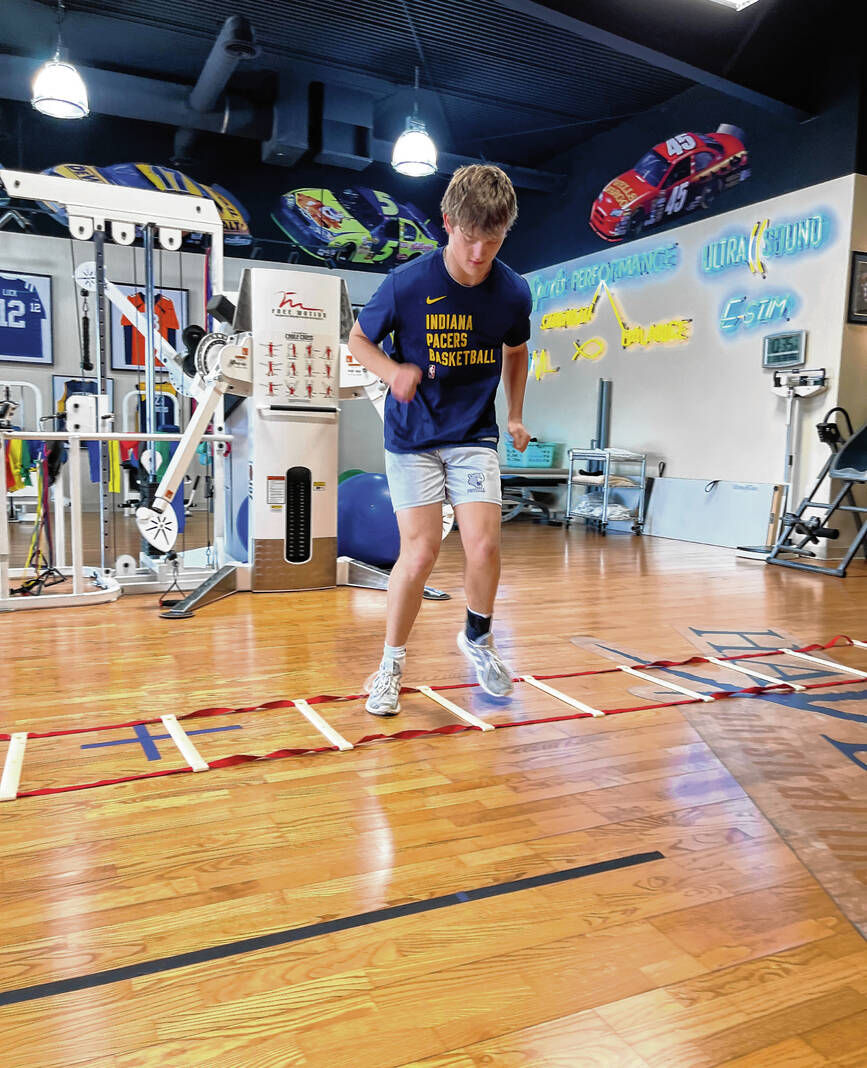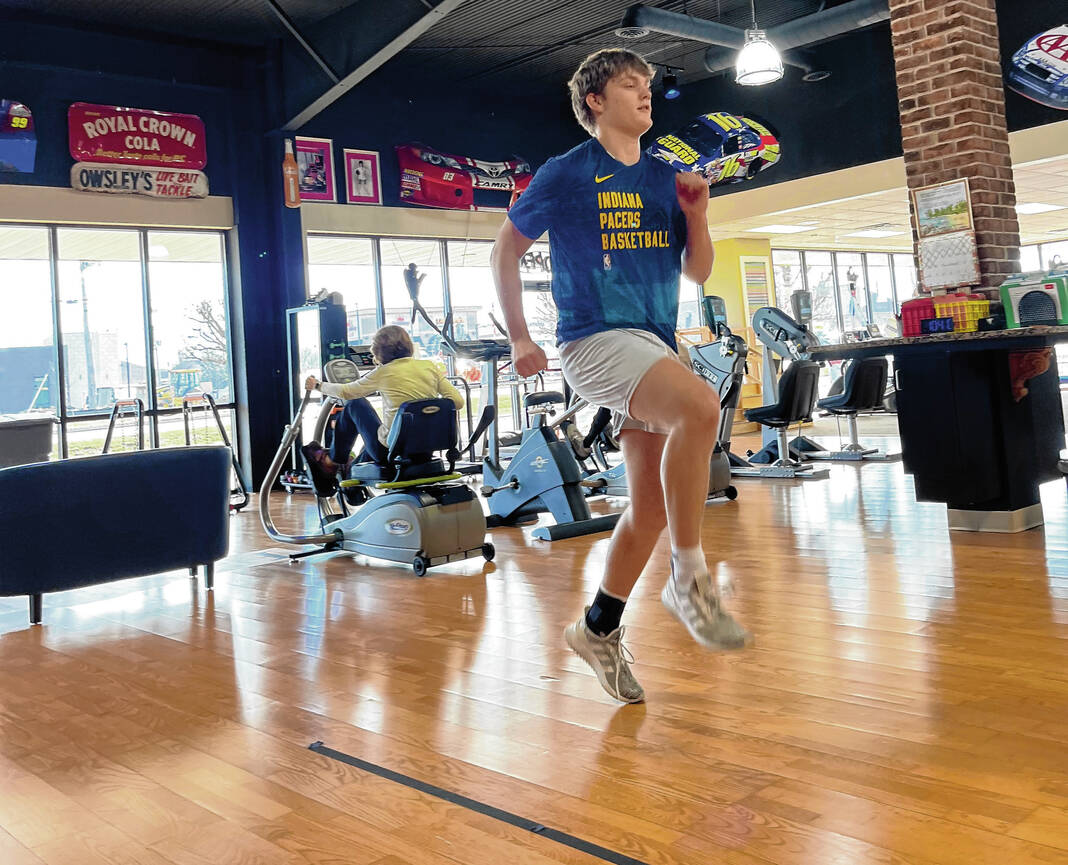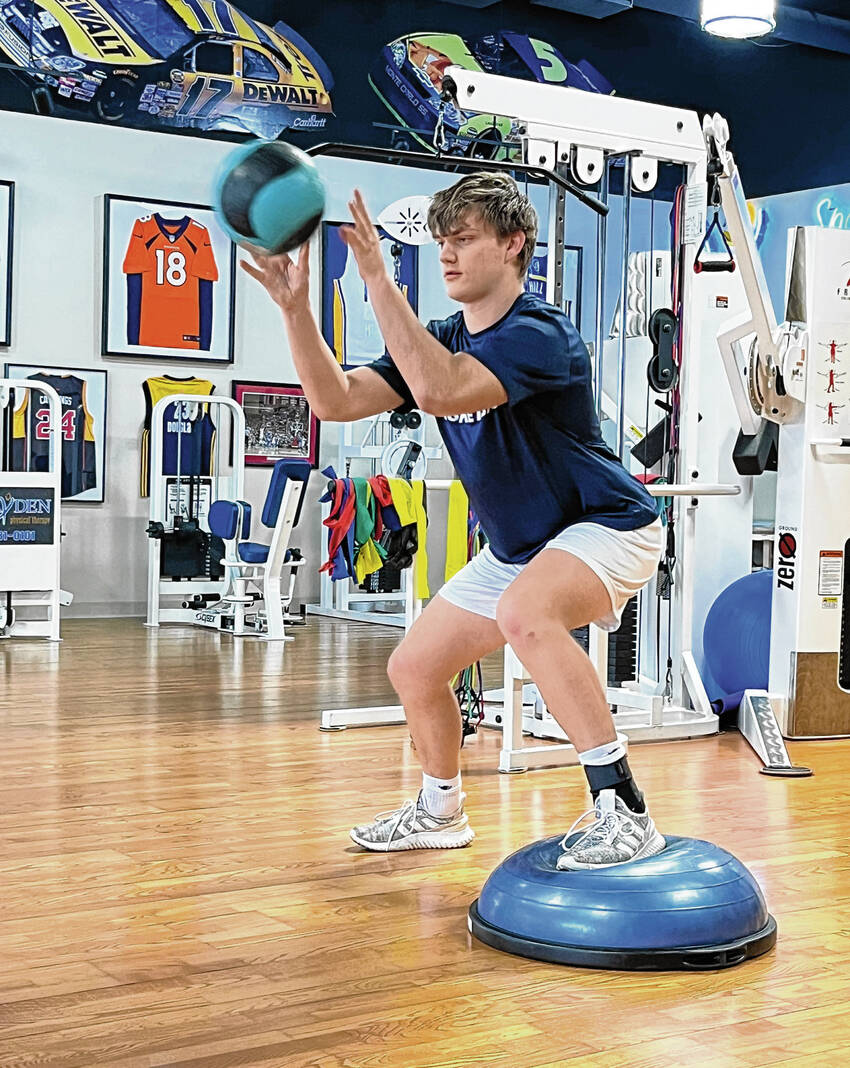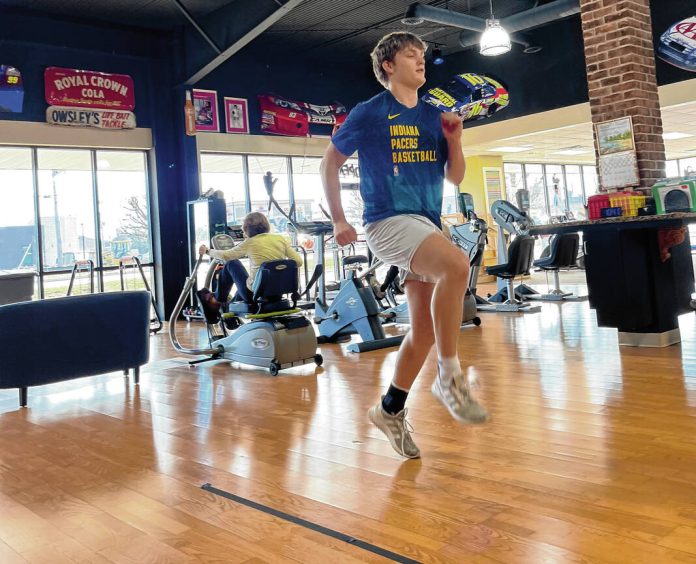
Evan McIntire, a junior at Greenwood Christian Academy, does physical therapy after having surgery to repair a leg injury suffered during a game on Dec. 7. Submitted photo
Silence filled the gymnasium — and not in the way Greenwood Christian Academy leaders had pictured.
The school had decided to host its first Silent Night game in December 2023, taking a cue from the unique tradition Taylor University started where the fans stay quiet until the team reaches their 10th point.
Cougar faithful got into the spirit, if not absolute silence, at the start of the game with Covenant Christian.
But when junior guard Evan McIntire went crashing to the floor after going up for a block, the absence of noise in the gym was deafening.
“The whole gym got perfectly silent. The teams were together praying, people in the stands were all praying,” said Carrie McIntire, Evan’s mother.
McIntire suffered severe leg injuries on that December night, dislocating and fracturing his fibula in three places. His doctors and family wondered if he’d ever play basketball again; even he was uncertain about his athletic future.
But McIntire quickly dedicated himself to his recovery. Whatever doubts he had were replaced by tireless rehabilitation, hard work and dedication to his physical therapy.
When he stepped back on the court in time for Greenwood Christian’s sectional playoff win in March and the crowd chanted his name, the experience was unparalleled.
“It was a great feeling, being back with the team. They were so supportive the whole time, so I was confident we’d all gel like we did before the injury,” he said.
The circumstances are still a blur.
McIntire, one of the leaders on the Cougar squad, saw an opposing player go up for a shot. He went for the block, but came down on his other ankle, crumpling on the ground.
Immediately, the game stopped as teammates and others surrounded McIntire. He remembers laying on the floor, then realizing that something was seriously wrong with his leg.
“It took me a little bit to realize what was happening, but once I did, I knew it wasn’t good,” he said.
From the stands, Carrie McIntire rushed down to see her son, wracked with worry. Still, she couldn’t help but smile at his first question for her in the ambulance.
“He asked, ‘Did we win? Did (the other player) make the basket?’ That’s just Evan. That’s how competitive he is,” Carrie McIntire said.
An ambulance arrived at the gym and transported him to Riley Hospital for Children at IU Health. He was immediately seen by orthopedic surgeon Dr. Erika Daley.
The injury was severe, with multiple breaks in his fibula bone and a damaged syndesmosis, which is the stabilizing ligament of the ankle joint.
“Evan had a very serious ankle injury, one of the worst I’ve seen in my career,” Daley said. “When there’s an injury that severe, there’s really no other way to fix it other than surgery. Without treatment, you’re at high risk of getting arthritis in the future, and the ankle would be really unstable long-term.”
The surgical solution included fixing McIntire’s broken bones with plates and screws. The ligaments were replaced with a medical device that allowed the leg to heal over time.
Despite the seriousness of the injury, Daley saw a path forward where McIntire could continue playing basketball.
“Evan and his mom made it very clear from the moment I met them that he wanted to play in college, this was going to be a speed bump for him, but whatever it takes, he would be back. And that was my goal for him, too,” Daley said.
She suspected he would be out for the rest of GCA’s season, but she hoped to have him back in time for his AAU season in April.
McIntire had other plans.
Following surgery, he had six weeks of recovery where he could not put any weight on the leg. He moved around with crutches, then was fitted for a boot to protect the repaired ankle. As soon as Daley determined he could put weight on the leg, the family searched for a place to start physical therapy.
He ended up Hayden Physical Therapy in Greenwood. McIntire went to therapy three times a week and worked with the trainer at Greenwood Christian two other days. Everyone shared a common vision — to heal McIntire and get him back on the court.
“Right from the jump, I knew I wanted to get back as soon as possible. Once I got into physical therapy, the first time I jump-roped, I believed I could get back,” he said.
The goal was to return to the team in time for the sectional in late February. Therapists had him work on balancing, doing exercises to regain mobility in the ankle, and doing drills with jump ropes and balancing with weights.
His regimen included running on a treadmill once he was stonger. Towards the end, he was doing more basketball-related drills.
“After I went through a bunch of drills at physical therapy, they let me do pre-game warm ups with the team. That was a big test,” he said. “They wanted me to see what it was like being out there again and testing how it would go.”
For McIntire, those first drills brought on some anxiety — would his leg hold up? Quickly, he learned to trust his body.
The first game he returned to the court for the Cougars was the second game of sectionals on March. He was subbed in for a few minutes as a test run during GCA’s 58-21 rout of Central Christian. Then, in the sectional championship game against Indianapolis Lutheran a night later, McIntire scored 17 points to help lead his team to a 49-46 victory.
“It was pretty emotional,” Karen McIntire said. “We were pretty proud, but anxious too, watching your kid go through that and knowing all what he had done to get back and how hard he had worked. It made me so proud that he did it.”
McIntire helped Greenwood Christian advance all the way to the Class A semistate, and he then played AAU ball in the spring. He’s back playing for the school over the summer and is preparing for football in the fall.
The ankle feels great.
“It healed really well. I don’t even notice it that much,” he said.
The ordeal has been trying for McIntire, but it also reinforced his dedication and commitment to hard work. He realizes his situation may not be typical for other young people who suffer sports injuries. But for others who find themselves in a similar situation, he emphasized finding a balance between working hard and listening to the experts around him.
“Trust what people tell you, but also know what you can do. Push yourself, but don’t lose trust in what people tell you,” he said.


